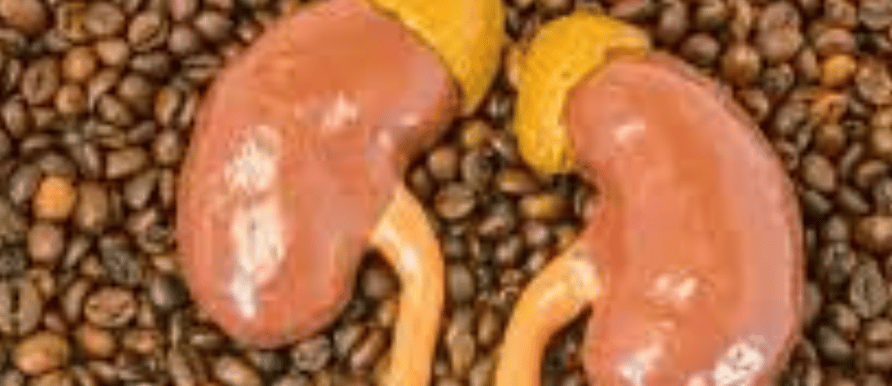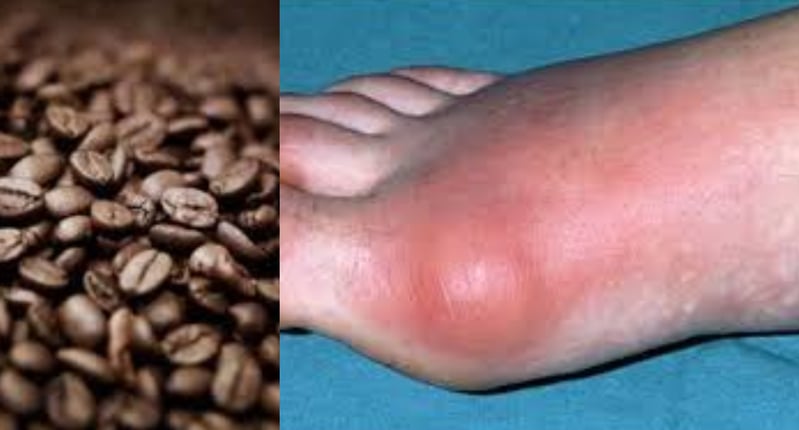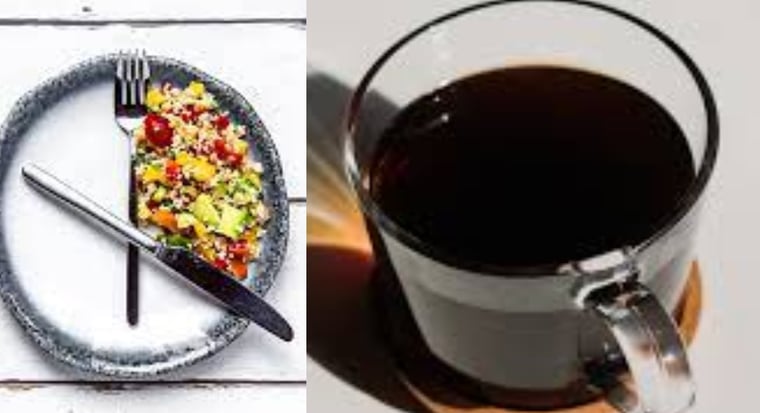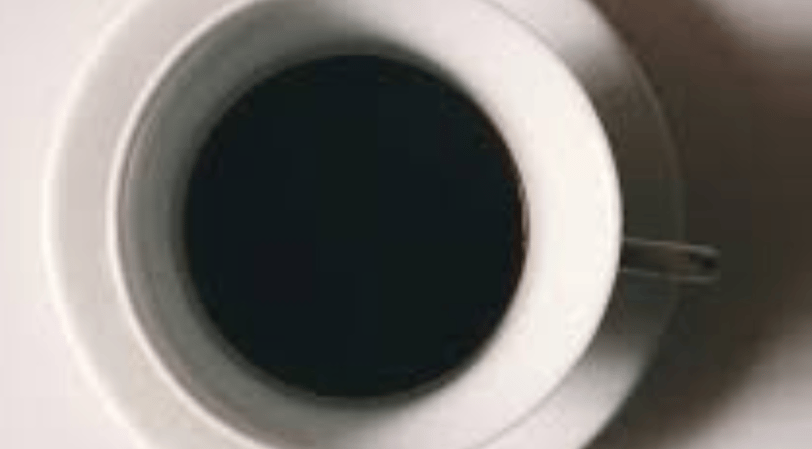The Effects of Coffee and fasting on Kidney Health
is complex and contra verse.
Some studies have suggested that coffee consumption may increase the risk of kidney disease,
While others have found that it may actually protect against it.
Caffeine is a major component of coffee, and it is thought to be the main substance.
responsible for any potential negative effects on the kidneys.
its obvious benefit for the population
Caffeine can cause a short-term increase in blood pressure,
which can put additional stress on the kidneys.
But nothing for a lot of people.
Coffee boosts brainpower
Coffee increases blood pressure
Coffee makes your immune system stronger
Coffee relieves a headache
Coffee reduces stress
Coffee improves your memory
Coffee helps you lose weight
Coffee with sugar can turn you into a little genius for a while because the combination of caffeine and glucose activates certain sectors of your brain.
The caffeine in coffee acts as a mild stimulant to the central nervous system.
This neuronal activity triggers the release of the adrenaline, that will affect your body in several ways:
your heartbeat increases, blood pressure rises, breathing tubes open up, sugar is released into the bloodstream for extra energy.
You might want to keep off the coffee if you are going to have a blood pressure test within the next 2 days.
Coffee is known for its energy-boosting
caffeine effect is an abundant source of nutrients and healthful chemicals that can aid your immune system.
coffee reduces the risk of premature death.
This is because coffee alters your immune system, making it stronger and healthier.
The caffeine can cure headaches and migraines.
People are aware that caffeine is found in coffee, tea, soft drinks and chocolate
but may not know that caffeine is also contained in a variety of over the counter medications. That’s why it’s an ingredient in a lot of traditional pain relievers.
offee acts well as an anti-stress substance due to the release of dopamine and serotonin, which "trigger" a good mood.
One cup, or even just the smell of coffee, can calm your nerves.
This could explain a lower risk of depression among coffee drinkers.
Coffee can positively affect mood, enhance alertness, and memory abilities.
The stimulators and neuro-mediators obtained from coffee not only boost your mood and productivity but also improve your memory.
Of course, this only works with your short-term memory.
Coffee can keep off and help you lose excess weight.
It can temporarily suppress your appetite and may stimulate minimal calorie burning.
When the level of the hormone leptin is low, your body starts storing fat, and you gain weight. Coffee, however, increases the hormone levels in your body.
coffee is a good source of antioxidants, which can help to protect the kidneys from damage.
some studies have found that coffee consumption may be associated with a lower risk of type 2 diabetes, which is a major risk factor for kidney disease.
In general, coffee is considered to be safe for people with kidney disease to drink in moderation,
but it is important to avoid adding too much milk or sugar, as this can increase the potassium and phosphorus content of the coffee, which can be harmful to people with kidney disease.
tips for enjoying coffee in a healthy way:
Limit your intake to 3-4 cups per day.
Avoid adding too much milk or sugar.
Choose black coffee or coffee with low-fat milk and sugar-free sweetener.
Drink plenty of water throughout the day to stay hydrated.
If you have kidney disease, talk to your doctor about whether or not coffee is safe for you to drink.
Moderate coffee consumption is likely safe for most people
Coffee and fasting in kidney science
Yes, there is a scientific basis for the claim that coffee fasting can help to detoxify uric acid from the kidneys.
Coffee has been shown to be a natural diuretic, which means that it can help the body to produce more urine.
This can help to flush out excess uric acid from the kidneys.
coffee contains antioxidants that can help to reduce inflammation and protect the kidneys from damage.
coffee is alkaline, which can help to neutralize the acidity of uric acid and make it easier for the body to excrete.
published in the journal Clinical Nephrology, found that coffee consumption was associated with a lower risk of chronic kidney disease.
it is important to note that coffee fasting is not a one-size-fits-all solution.
tips for coffee fasting safely:
Start with a short fast, such as 12 hours, and gradually increase the length of the fast as tolerated.
Drink plenty of water and other calorie-free beverages during the fast.
Avoid sugary drinks, caffeine, and alcohol.
Break the fast with a light meal, such as a salad or soup.
Stop fasting if you experience any negative side effects, such as dizziness, lightheadedness, or nausea.
Considering coffee fasting to detoxify your kidneys as routine if you either consider intermittent or islamic fasting.
Coffee and fasting have both been studied for their potential effects on kidney health.
Coffee has been shown to have a number of potential benefits for kidney health
Reduced risk of chronic kidney disease (CKD): Several studies have shown that coffee consumption is associated with a reduced risk of developing CKD.
Reduced risk of kidney stones: Coffee is a diuretic, which means that it helps the body to produce more urine. This can help to flush out excess calcium and other minerals from the urine
Improved kidney function: Coffee may also help to improve kidney function in people with CKD. that those who drank coffee had better kidney function than those who did not drink coffee.
Fasting has also been shown to have some potential benefits for kidney health, including:
Reduced inflammation: Fasting can help to reduce inflammation throughout the body, including in the kidneys.
Improved blood sugar control: Fasting can help to improve blood sugar control in people with diabetes. This is important because high blood sugar can damage the kidneys over time.
Reduced risk of kidney stones: Fasting can help to reduce the risk of kidney stones forming by flushing out excess calcium and other minerals from the urine.
keywords
kidney ,coffee, caffeine, Moderate, plenty of water, hydrated, milk, sugar, diabetes , harmful,protects,mood, alertness, memory,Reduced inflammation,Improved blood sugar control,Reduced risk of kidney stones, potential benefits for kidney health,Reduced risk of chronic kidney disease (CKD),
Coffee, Fasting, and Kidney Health
an in-depth analysis of the interplay between coffee consumption, fasting (including intermittent fasting and Ramadan fasting), and kidney health.
Optimized for SEO with keywords like "coffee and kidneys," "fasting and kidney health," "caffeine effects," and "hydration," it synthesizes insights from diverse sources to offer a holistic understanding of these complex interactions.
Key Topics
1. Coffee’s Impact on Kidney Health
Diuretic Effect and Fluid Balance:
Coffee contains caffeine, a diuretic that increases urination, potentially leading to fluid and mineral loss.Without adequate hydration, this can strain the kidneys.
According to one source, "Caffeine has a diuretic effect, meaning it increases urination, which may cause fluid and mineral loss, potentially harming kidneys if fluids aren’t properly replenished.
" To mitigate this, drinking sufficient water is critical.
Blood Pressure:
Caffeine can cause temporary blood pressure spikes, a risk factor for chronic kidney disease (CKD) if sustained.However, moderation is key. A WebMD article notes, "Drinking less than three cups of coffee daily may pose no significant risk in this regard."
Potassium Levels:
Black coffee has minimal potassium, but excessive consumption or additives like milk and creamers can elevate potassium levels, a concern for CKD patients.The National Kidney Foundation (NKF) advises, "Three to four cups of coffee daily are high in potassium and may raise your levels. Adding creamers or milk can further increase potassium content." They recommend limiting intake to under three cups for safety.
Potential Benefits:
Some studies suggest coffee’s antioxidants may protect against certain kidney conditions, including renal cell carcinoma, and reduce kidney stone formation.WebMD highlights, "Scientific studies indicate that drinking coffee, whether caffeinated or decaf, may lower the risk of kidney stones."
Conflicting Research:
Evidence on coffee’s kidney impact varies. A Mendelian randomization study found no significant link between coffee consumption and CKD or glomerular filtration rate (eGFR) in diabetic and non-diabetic individuals.Meta-analyses similarly concluded, "Coffee consumption was not significantly associated with CKD." Yet, other research ties moderate coffee intake to a reduced CKD risk, underscoring the need for further investigation.
2. Fasting’s Effects on Kidney Health
Dehydration Risk:
Prolonged fasting, especially during Ramadan, restricts fluid intake, increasing dehydration risks.This can concentrate urine, promote kidney stone formation, and impair kidney function.
A source on Ramadan kidney pain warns, "Dehydration exacerbates kidney discomfort during fasting due to prolonged abstinence from water, leading to toxin and salt buildup, which isn’t expelled through urine."
Rest Periods:
Fasting may allow kidneys to rest, particularly if the diet during non-fasting hours is balanced. One source notes, "Fasting can give kidneys a break, especially if the diet during breaking the fast is balanced and includes adequate fluids."Tissue Repair:
Emerging research suggests fasting may stimulate cellular repair and regeneration, potentially benefiting kidney tissues.Ramadan and Kidney Patients:
Fasting poses risks for certain kidney patients.The same Ramadan source cautions, "Prolonged abstinence from water can cause serious complications." Groups prohibited from fasting include those with acute kidney failure, on dialysis, with kidney transplants, or diabetics with kidney complications.
It advises, "Consult a doctor if you have a history of kidney issues to determine if fasting is suitable."
Tips for Kidney Health During Ramadan:
A guide on Ramadan kidney care recommends:Increase fluid intake between iftar and suhoor.
Avoid delaying iftar to maintain hydration.
Reduce salt and salty foods to ease kidney strain.
Avoid diuretic beverages like coffee during fasting hours.
Eat water-rich fruits and vegetables (e.g., cucumbers, watermelon).
3. Interplay of Coffee, Fasting, and Kidney Health
Balancing Coffee and Fasting:
Coffee consumption during non-fasting periods (e.g., iftar or intermittent fasting windows) requires careful fluid management to prevent dehydration. One source mentions, "Consider coffee fasting to detoxify your kidneys," suggesting moderation in coffee intake alongside fasting.Kidney Patients and Coffee:
CKD patients fasting must monitor coffee due to its diuretic properties and potassium content, which, combined with fasting-induced dehydration, can exacerbate kidney stress.Personalized Care:
Individual health conditions dictate safe coffee and fasting practices, emphasizing the need for medical guidance.
4. Kidney-Related Symptoms and Risks
Early Warning Signs:
Kidney issues may present as changes in urination (frequency, color, foaminess), lower back pain, anemia, urinary tract infections, swelling, itching, sleep difficulties, or a metallic taste in the mouth. WebMD explains, "The most noticeable sign is often a change in urination habits, as urine production is the kidneys’ primary function."Risk Factors:
Dehydration, high-sodium diets, smoking, excessive painkiller use, and high-protein diets increase kidney strain, particularly during fasting.
5. General Tips for Kidney Health
Hydration:
Maintain adequate water intake, especially between iftar and suhoor during Ramadan. A medical source advises, "Drinking too little water (less than 0.5 liters/day) or too much (over 2 liters/day) increases kidney disease risk compared to moderate intake (1-2 liters/day)."Balanced Diet:
Follow a low-sodium, low-potassium, low-phosphorus diet, especially for CKD patients. The Mayo Clinic offers kidney-friendly recipes to support dietary compliance.Avoid Overuse of Painkillers:
Limit non-prescribed medications to protect kidney function.Manage Chronic Conditions:
Control diabetes and hypertension to reduce kidney disease risk.Medical Consultation:
Seek a doctor’s advice before starting any fasting regimen, particularly for those with kidney concerns.
Key Quotes
Intermittent Fasting and CKD: "If you have chronic kidney disease (CKD), speak with your doctor before trying intermittent fasting. They can provide personalized advice based on your CKD stage and severity."
Coffee Safety: "Coffee is not bad for coffee lovers with kidney disease, but consider a few factors next time you pour a cup."
Ramadan Kidney Pain: "Kidney pain during Ramadan can stem from various conditions like kidney failure, stones, cysts, glomerulonephritis, or urinary infections."
Kidney Importance: "Kidneys perform vital functions, so their care is essential."
Fasting Benefits: "Fasting purifies kidneys and urinary tracts, allowing cellular renewal to prepare them for filtering blood and expelling toxins."
Coffee’s Diuretic Effect: "Coffee’s caffeine acts as a diuretic, increasing urination and potentially causing fluid and mineral loss."
Hydration Needs: "Drinking plenty of fluids is key to health, but fasting limits your daily window to consume the recommended ~2 liters (8 cups) of water."
Conclusion
The relationship between coffee, fasting, and kidney health is intricate and multifaceted. Individuals, especially those with kidney conditions, must exercise caution with coffee consumption and fasting to avoid dehydration and potassium imbalances.
Study Guide: Kidney Health, Nutrition, and Fasting FAQS
relationships between kidney health, nutrition, and fasting, optimized for SEO with keywords like "kidney health," "fasting and kidneys," "nutrition for CKD," and "Ramadan fasting."
Drawing from diverse, authoritative sources, it provides detailed insights, practical recommendations, and a robust framework for understanding these interconnected topics.
Summary of Key Sources
("Ask the Expert: Is Intermittent Fasting Safe for Kidney Disease?"):
Explores intermittent fasting (IF) methods (16/8, Eat-Stop-Eat, 5:2) and deems them generally safe for healthy individuals. It emphasizes that chronic kidney disease (CKD) patients must consult physicians before fasting, tailoring plans to disease stage and severity.
("Coffee and Kidney Disease: Is it Safe?"):
Confirms moderate coffee consumption (less than three cups of black coffee daily) is safe for most CKD patients.Highlights potassium risks from additives like milk or creamers, urging careful monitoring.
("Kidney Pain in Ramadan: Causes and Tips to Avoid It During Fasting"):
Identifies causes of Ramadan-related kidney pain, including dehydration, dietary changes, CKD, excessive salt/protein intake, smoking, and painkiller overuse. Lists symptoms of kidney infections, failure, and stones, specifying fasting restrictions for certain patients and offering preventive tips (e.g., ample fluids, balanced diet, reduced diuretics).
("Early Kidney Disease Symptoms: Know Them"):
Stresses early detection of kidney issues, detailing symptoms like urinary changes, lower back pain, anemia, infections, swelling, itching, sleep issues, and metallic taste in the mouth.
("Fasting and Urinary/Reproductive Health"):
Highlights fasting’s benefits for kidneys and urinary tracts, such as detoxification and reduced stone-forming salt deposits. Advises urinary patients to hydrate well between iftar and suhoor, avoid certain foods, and notes fasting’s potential fertility impacts.Discuss coffee’s diuretic effect, temporary blood pressure elevation, and antioxidant benefits.
Fasting may limit fluids but can rest kidneys and enhance tissue function.
Recommends coffee moderation, hydration, and medical consultation.
Some studies link coffee to lower CKD and kidney stone risks.
("Kidney-Friendly Diet"):
Details a CKD diet minimizing sodium, protein, potassium, and phosphorus, with tailored recipes to support kidney function.
("Coffee’s Impact on Kidneys: What Do We Know?"):
Reviews conflicting studies on coffee, noting potential benefits in reducing kidney stones, CKD mortality, and certain kidney cancers, while cautioning about potassium and blood pressure risks. Advises moderation and medical guidance.
("Tips to Maintain Kidney Health During Ramadan"):
Offers Ramadan-specific advice: hydrate between iftar and suhoor, eat balanced iftar meals, and ensure adequate sleep. Provides tailored guidance for CKD patients fasting under supervision.
("Does Water Prevent Kidney Disease?"):
Emphasizes moderate water intake (1-2 liters/day) for kidney health and circulatory stability during fasting, noting it may not directly prevent kidney disease.
Answer Key
Three Intermittent Fasting Types:
16/8 Method: Eat within an 8-hour window, fast for 16 hours daily.
Eat-Stop-Eat: Fast for 24 hours twice weekly.
5:2 Diet: Consume 500-600 calories on two non-consecutive days, eat normally on five days.
CKD Fasting Advice: Consult a doctor for personalized guidance based on CKD stage and severity.
Coffee Safety: Less than three cups of black coffee daily is generally safe. Primary concern: potassium levels, especially with milk or creamers.
Ramadan Kidney Pain Causes: Dehydration, dietary changes, kidney stones.
Early Kidney Symptoms: Urinary changes (frequency, color, foaminess), lower back pain, body swelling.
Fasting Benefits: Purifies kidneys and urinary tracts, allows cellular renewal, reduces stone-forming salt deposits.
Fluid Intake Advice: Drink ample fluids between iftar and suhoor, distributed evenly to prevent dehydration.
Foods/Drinks to Limit: Salty foods, diuretic beverages (coffee, tea, sodas), high-protein animal products.
Coffee’s Negative Effects: Increased urination leading to fluid/mineral loss, temporary blood pressure spikes.
Kidney Diet Focus: Reduce sodium, protein, potassium, and phosphorus intake.
Essay Questions
How does intermittent fasting impact kidney health, considering both benefits and risks from the sources?
Intermittent fasting (IF) can influence kidneys variably.
Benefits include reduced metabolic strain and potential cellular repair, as fasting allows kidneys to rest, per source texts.
Balanced non-fasting diets may lower stone-forming salts, Risks center on dehydration, critical for CKD patients, as prolonged fluid restriction concentrates urine and stresses kidneys.
stresses consulting doctors for CKD patients, as fasting’s safety depends on disease stage. For healthy individuals, IF is generally safe, but dehydration risks remain if fluid intake isn’t managed.
Balancing fasting with hydration and nutrition is key to minimizing harm.
Evaluate the evidence on coffee’s impact on kidney health. Is there consensus on whether it’s beneficial or harmful?
Evidence on coffee is mixed, with no definitive consensus.
studies suggesting coffee reduces kidney stone risk, CKD mortality, and renal cancer odds due to antioxidants, while NKF confirms moderate intake (under three cups) is safe for most CKD patients.
However, coffee’s diuretic effect risks fluid loss, and potassium from additives like milk raises concerns for CKD patients.
Source texts note a Mendelian study found no significant CKD link, but others associate moderate coffee with lower CKD risk.
Factors like dosage, additives, and individual health muddy the waters, requiring personalized advice.
Describe the main health challenges CKD patients face during Ramadan and recommendations for safe fasting.
Ramadan poses challenges like dehydration from prolonged fluid abstinence, exacerbating kidney pain, per Delta Labs.
Dietary shifts (high salt/protein) and CKD complications (stones, infections) worsen risks. Certain patients—those with acute failure, on dialysis, or with transplants—are often prohibited from fasting.
Recommendations include: hydrate heavily between iftar and suhoor (Cura), avoid diuretics like coffee , reduce salt/protein , monitor blood pressure/sugar, and consult doctors for tailored plans to ensure safe fasting.
Nutrition’s role in kidney health: Discuss key nutrients CKD patients should monitor, with examples of meal adjustments.
Nutrition is critical for CKD management.
emphasizes low sodium, protein, potassium, and phosphorus diets. Sodium: Avoid salty snacks; use herbs for flavor. Protein: Limit red meat; opt for small portions of eggs or tofu. Potassium: Reduce bananas/oranges; choose apples or berries. Phosphorus: Avoid cola/nuts; select rice milk over dairy. Sample meal: grilled chicken (small portion), steamed broccoli, white rice, and cucumber salad—low in restricted nutrients, balanced for kidney support.
Explain early kidney disease symptoms and the importance of seeking medical advice.
Early detection is vital, .
Symptoms include urinary changes (frequency, color, foaminess), lower back pain, swelling (ankles, face), anemia, infections, itching, sleep issues, and metallic taste.
These signal potential kidney dysfunction, as urine production is a core kidney task.
Ignoring them risks progression to severe CKD or failure.
Seeking medical advice enables tests (eGFR, creatinine) for timely intervention, slowing disease advancement and improving outcomes.
Glossary of Key Terms
Intermittent Fasting (IF): Eating pattern alternating regular eating and fasting periods.
Chronic Kidney Disease (CKD): Long-term condition with gradual kidney function loss.
Potassium: Essential mineral requiring monitoring in CKD diets.
Kidney Stones: Hard deposits of salts/minerals in kidneys.
Dehydration: Excessive fluid loss impairing body function.
Dialysis: Treatment purifying blood when kidneys fail.
Kidney Transplant: Surgery replacing a failed kidney with a donor’s.
Hematuria: Blood in urine, signaling kidney issues.
Oxalate: Compounds in foods contributing to kidney stones.
Diuretic: Substance increasing urine production.
Antioxidants: Compounds protecting cells from damage.
Glomerular Filtration Rate (GFR): Measure of kidney filtration efficiency.
Albumin: Blood protein; its presence in urine indicates kidney damage.
Urea: Waste product filtered by kidneys.
Creatinine: Waste product used to assess kidney function
Consulting a healthcare provider ensures personalized guidance tailored to one’s health status and kidney disease stage.
Moderation, proper hydration, a balanced diet, and chronic disease management are foundational to maintaining optimal kidney health.
FAQs on Kidney Health, Fasting, and Coffee
This FAQ guide provides detailed research-backed answers to common questions about kidney health, fasting, and coffee consumption, optimized for SEO with keywords like "kidney health," "intermittent fasting," "coffee and kidneys," and "Ramadan fasting."
It dives deep into each topic to offer actionable insights for maintaining optimal kidney function.
1. What Are the Different Types of Intermittent Fasting, and Is It Safe for Kidney Patients?
Answer:
Intermittent fasting (IF) includes several methods:
16/8 Method: Eating within an 8-hour window, fasting for 16 hours daily (e.g., 12 PM-8 PM eating, 8 PM-12 PM fasting).
Eat-Stop-Eat: A full 24-hour fast twice weekly (e.g., Monday and Thursday).
5:2 Diet: Consuming 500-600 calories on two non-consecutive days (e.g., Tuesday and Friday), eating normally the other five days.
Safety: IF is generally safe for healthy individuals, promoting weight loss and metabolic health.
However, for those with chronic kidney disease (CKD), it’s not a one-size-fits-all solution. Prolonged fasting can strain kidneys through dehydration or nutrient imbalances. Experts strongly recommend CKD patients consult a doctor for personalized advice, factoring in disease stage and severity to avoid complications like worsened kidney function or electrolyte imbalances.
2. Is Drinking Coffee Harmful or Beneficial for Kidney Health, and What’s the Recommended Amount for Kidney Patients?
Answer:
General Impact: Coffee isn’t inherently harmful to kidney patients when consumed moderately. An 8-ounce cup of black coffee contains just 116 mg of potassium, posing minimal risk. However, excessive intake (3-4 cups daily) elevates potassium levels, a concern for CKD patients whose kidneys struggle to excrete excess potassium.
Additives like milk or creamers further increase potassium, amplifying risks.
Recommended Amount: Less than three cups of black coffee daily is considered safe for most CKD patients.
Considerations: Caffeine’s diuretic effect increases urination, potentially dehydrating the body and stressing kidneys if fluids aren’t replenished. Consulting a doctor is crucial to tailor intake to your health status, especially if you have CKD or hypertension.
3. What Causes Kidney Pain That May Worsen During Ramadan Fasting?
Answer:
Kidney pain during Ramadan often intensifies due to fasting-related changes:
Dehydration: Prolonged fluid abstinence concentrates urine, straining kidneys and triggering discomfort.
High Salt Intake: Salty foods elevate blood pressure, overworking kidneys.
Excess Protein: High-protein diets burden kidneys with waste filtration.
Smoking: Toxins from smoking impair kidney function.
Painkiller Overuse: Frequent use stresses kidneys, especially without hydration.
Underlying Conditions: CKD, kidney stones, cysts, or urinary infections worsen with fasting-induced dehydration or dietary shifts.
These factors highlight the need for careful management during Ramadan to prevent kidney strain.
4. Which Kidney Patients Are Typically Prohibited from Fasting During Ramadan?
Answer:
Certain kidney patients face serious risks from Ramadan fasting due to extended fluid restriction:
Acute Kidney Failure Patients: Severe kidney dysfunction can’t handle fasting’s demands.
Dialysis Patients: Both hemodialysis and peritoneal dialysis patients require fluid and nutrient balance incompatible with fasting.
Kidney Transplant Recipients: Post-transplant kidneys need consistent hydration and medication schedules.
Diabetics with Kidney Damage: CKD combined with diabetes increases complication risks.
However, some patients may fast with medical approval based on individual health stability. A doctor’s consultation is essential to assess feasibility and safety.
5. How Does Ramadan Fasting Generally Affect Kidneys, and What Are Tips to Maintain Kidney Health During Fasting?
Answer:
General Impact: In healthy individuals, fasting temporarily reduces kidney fluid processing, but function normalizes post-iftar with proper hydration.
For CKD patients, prolonged dehydration can exacerbate symptoms or impair function, raising risks of toxin buildup or stones.
Tips for Kidney Health:
Hydrate Well: Drink 2.5-3 liters of water between iftar and suhoor, spaced evenly.
Break Fast Promptly: Avoid delaying iftar to restore fluids quickly.
Reduce Salt: Limit salty foods to ease kidney workload.
Avoid Diuretics: Minimize coffee, tea, or sodas that increase urination.
Eat Water-Rich Foods: Include fruits/vegetables like watermelon and cucumbers.
Cut Protein/Oxalates: Reduce meat and oxalate-rich foods (e.g., spinach).
Stay Active Moderately: Light exercise supports circulation without overexertion.
These steps mitigate fasting’s kidney stress, supporting overall health.
6. What Early Symptoms Might Indicate a Kidney Problem That Shouldn’t Be Ignored?
Answer:
Kidney disease, dubbed the "silent disease," often lacks obvious early signs, but key symptoms signal trouble:
Urinary Changes: Frequent/scarce urination, color shifts (dark, cloudy), foaminess, pain, or odor.
Lower Back Pain: Aching extending to thighs, often one-sided.
Fatigue/Anemia: Tiredness from reduced red blood cell production.
Recurrent UTIs: Persistent infections hint at kidney issues.
Swelling: Edema in ankles, feet, face, or around eyes from fluid retention.
Itching/Rash: Toxin buildup causes skin irritation.
Sleep Issues: Discomfort disrupts rest.
Metallic Taste: Altered taste, bad breath, nausea, or poor concentration from waste accumulation.
Ignoring these risks progression—early medical evaluation is critical.
7. Does Drinking Lots of Water Necessarily Protect Against Kidney Disease, and What’s the Recommended Daily Amount?
Answer:
Myth vs. Reality: While hydration supports kidney function, excessive water doesn’t guarantee protection and may strain kidneys.
Studies show moderate intake (1-2 liters daily) optimally maintains circulation and blood sugar stability, especially during fasting.
Overhydration (above 2 liters) or underhydration (below 0.5 liters) increases disease risk.
Recommended Amount: About 8 cups (2 liters) daily suits most, adjusted for activity, climate, and health.
CKD patients should follow doctor-guided limits to avoid fluid overload or dehydration.
8. Are There Potential Health Benefits of Moderate Coffee Consumption for Kidneys, Based on Studies?
Answer:
Yes, research suggests moderate coffee intake may benefit kidneys:
Reduced CKD Risk: Studies link coffee to lower chronic kidney disease incidence, possibly due to antioxidants.
Fewer Kidney Stones: Its diuretic effect flushes excess calcium and minerals, reducing stone formation.
Long-Term Protection: Antioxidants may guard against certain kidney diseases, like renal cancer.
Caveats: Benefits hinge on moderation (1-2 cups daily).
Excessive coffee raises potassium and blood pressure, counteracting gains.
CKD or hypertensive patients should consult doctors to weigh benefits against risks, ensuring safe consumption.
Conclusion
Kidney health hinges on balancing fasting, coffee intake, and hydration.
Intermittent and Ramadan fasting can support kidneys with proper management but pose risks like dehydration for CKD patients.
Coffee offers potential benefits in moderation but requires caution due to potassium and diuretic effects.
These FAQs empower readers with science-backed strategies to safeguard kidney function amidst fasting and coffee habits.
Always consult healthcare providers for personalized guidance tailored to your kidney health needs.
























